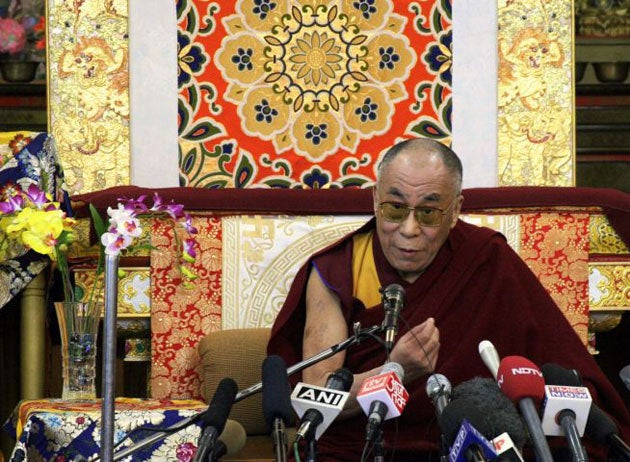Summit of Tibetan exiles rejects 'total independence' call

Your support helps us to tell the story
From reproductive rights to climate change to Big Tech, The Independent is on the ground when the story is developing. Whether it's investigating the financials of Elon Musk's pro-Trump PAC or producing our latest documentary, 'The A Word', which shines a light on the American women fighting for reproductive rights, we know how important it is to parse out the facts from the messaging.
At such a critical moment in US history, we need reporters on the ground. Your donation allows us to keep sending journalists to speak to both sides of the story.
The Independent is trusted by Americans across the entire political spectrum. And unlike many other quality news outlets, we choose not to lock Americans out of our reporting and analysis with paywalls. We believe quality journalism should be available to everyone, paid for by those who can afford it.
Your support makes all the difference.Tibetan exiles have shied away from pursuing total independence from China and agreed to back the non-violent "Middle Way" policy of the Dalai Lama.
"[The] majority of views have come up supporting the Middle Way path ... which is right," the Dalai Lama, 73, said at the end of a week-long meeting of almost 600 exiles in the Himalayan town of Dharamsala. "Total independence is not practical." The Buddhist leader, revered as a god-king by Tibetans but reviled by Beijing as a dangerous splittist, also sought to quash speculation that he might step down following a spell in hospital earlier this year with abdominal pain. "There is no point, or question of my retirement," he said. "It is my moral responsibility till my death to work for the Tibetan cause."
The Dalai Lama called the meeting after the failure of eight rounds of talks with Beijing. At its conclusion he struck a sombre tone, saying the Tibetan nation was close to a "death sentence". "My trust in Chinese officials has become thinner and thinner. In the next 20 years, if we are not careful in our actions and planning, then there is great danger to the Tibetan community," he said. Exiled Tibetans backed the "Middle Way" because they fear losing international support and further heightening tensions with Beijing. The decision came as a disappointment for those groups, particularly younger delegates, who had sought a shift towards an unequivocal demand for full independence.
However, Lhadon Tethorg, a pro-independence delegate and New York-based executive director of Students For A Free Tibet, said she was happy that the issue of a more aggressive approach had been discussed. "Independence is on the table now," she said. This was recognised in the meeting's communiqué, in which the Tibetans said their patience was limited.
The Tibetan issue has taken on a much greater political significance in China since protests in the Tibetan capital, Lhasa, in March erupted into violence that spread to other areas of western China with Tibetan populations. Tibet's government-in-exile said more than 200 Tibetans were killed in a Chinese crackdown. Beijing said the riots mostly killed ethnic Han Chinese and were the work of gangsters sponsored by the Dalai Lama and his "clique".
Join our commenting forum
Join thought-provoking conversations, follow other Independent readers and see their replies
Comments